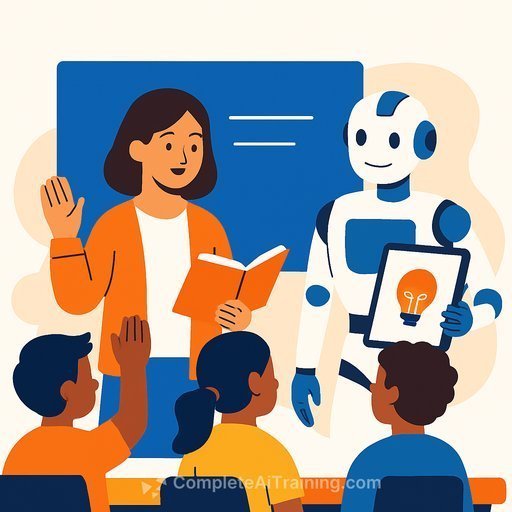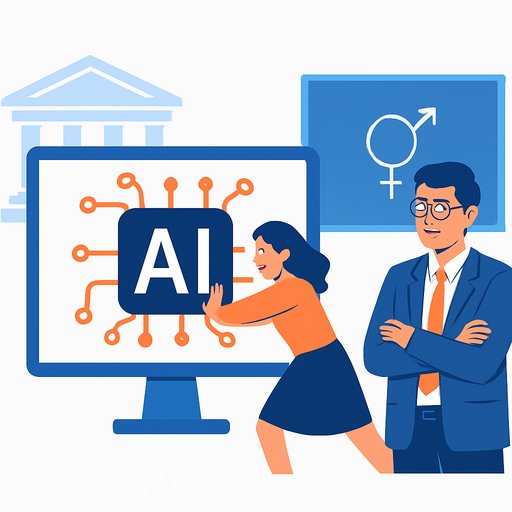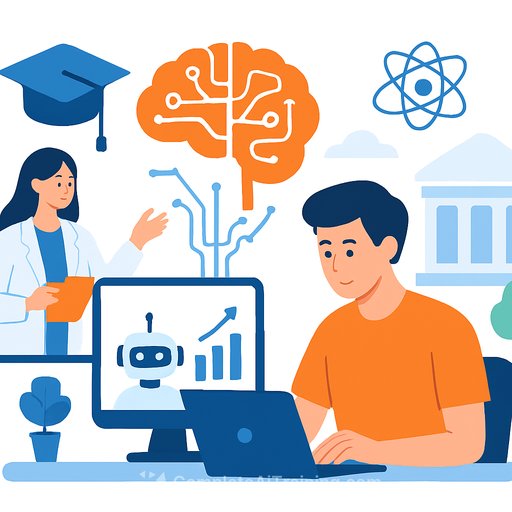AI is rewiring the economy. Can India's education system keep pace?
AI isn't just a new tool. It is changing the economics of decision-making by driving down the cost of prediction, a point long made by Ajay Agrawal, Joshua Gans, and Avi Goldfarb. Prediction is getting cheap; judgment, incentives, and ethics are not. That shift will reorder who makes decisions, how they make them, and which skills matter.
For India, this is urgent. A young population can become AI-ready or get sidelined as entry-level work gets automated. If colleges don't adapt fast, millions will miss the on-ramp to meaningful work and "learning by doing," a risk highlighted in research by James Bessen.
What educators need to re-focus on
- Core fluency across disciplines: Probability, statistics, computing, and data analysis for every student - not just engineers.
- AI as an input, not a crutch: Teach first principles (algorithms, data pipelines, causal inference) so students can critique and improve AI outputs.
- Integrated domains: Combine CS with economics, social sciences, biosciences, law, and public policy to study AI's impact on markets, institutions, and society.
- Critical thinking and media literacy: Fact-checking, source validation, and model skepticism in an era of deepfakes and algorithmic persuasion.
- Ethics and governance: Accountability, auditability, privacy, fairness, and incentive design baked into projects and assessments.
Curriculum blueprint (practical and modular)
- Foundation (all majors): Data literacy, statistics, Python, SQL, version control, prompt best practices, and evaluation of model outputs.
- AI literacy: Supervised/unsupervised learning, causal vs. correlational reasoning, model evaluation, bias detection, and safety considerations.
- Domain studios:
- Economics: Labor effects of AI, platform markets, auction design.
- Public policy: Algorithmic governance, digital public goods, procurement of AI systems.
- Biosciences: ML for diagnostics with error analysis and risk management.
- Media/law: Generative content, IP, misinformation audits.
- Capstones with real data: Crop advisory models, public service dashboards, credit scoring audits, or health triage pilots with clear metrics and risk controls.
- Multilingual access: Offer core AI and data modules in major Indian languages to widen participation.
How to teach it (without bloating the timetable)
- Short, iterative projects: Replace long lectures with weekly labs using local datasets and clear deliverables.
- Portfolio over rote exams: Grade code, model cards, data documentation, and reflection notes. Penalize blind reliance on AI outputs.
- Micro-apprenticeships: 6-8 week stints with startups, NGOs, and local administrations to solve targeted problems.
- Faculty incentives: Credit applied work and industry partnerships in promotion criteria.
- Tooling frugally: Use FOSS, shared GPU credits, and institution-wide sandboxes with strict data policies.
Models worth emulating
- MIT Schwarzman College of Computing: Computing embedded across disciplines to create domain-savvy technologists.
- IIIT Delhi's combined programmes in CS with Economics, Social Sciences, and Biosciences show how integration can work at scale.
Replace lost "entry-level learning" with structured alternatives
As basic coding, data cleaning, and drafting move to AI tools, the traditional first-job learning loop breaks. Build replacements inside the degree.
- Task ladders: Start with AI-assisted tasks, progress to error analysis, then to system design and governance.
- Service-learning: Projects tied to district needs (health, agriculture, logistics) so students learn constraints, not just code.
- Mentor pools: Practitioners review student work monthly; treat feedback as assessment, not extra credit.
Assessment that builds judgment
- Orals and code walkthroughs: Reduce ghostwork by quizzing students on their own outputs.
- Bias and error audits: Every model submission must include metrics, failure cases, and mitigation steps.
- Data provenance: Require documentation of sources, licenses, and cleaning decisions.
12-24 month institutional plan
- Quarter 1-2: Map current courses to AI-era skills; add foundation modules; train faculty in project-based teaching.
- Quarter 3-4: Launch domain studios; set up micro-apprenticeships; create a shared dataset repository with privacy guardrails.
- Quarter 5-6: Roll out capstones, multilingual modules, and portfolio-based assessments; formalize industry and civic partnerships.
For colleges with limited resources
- Use public data portals and small, well-scoped problems to avoid compute sprawl.
- Adopt open-source stacks; share labs across departments and time slots.
- Form regional alliances to pool mentors, datasets, and guest lectures.
- Prioritize judgment skills over heavy model training; emphasize evaluation, safety, and deployment choices.
Guardrails and ethics baked in
- Teach consent, privacy, and data minimization in week one, not week twelve.
- Integrate policy labs on procurement, audit trails, and public accountability for automated decisions.
- Set clear rules for acceptable AI assistance and enforce them with oral defenses and version history checks.
Early choices will determine India's role in the AI economy for decades. If we train operators without judgment, we will supply routine labor. If we train thinkers who use AI with rigor, we will set the course for how AI is applied across sectors.
Educators hold the lever. Build integrated curricula, make projects real, assess judgment, and expand access. India doesn't just need graduates who can use AI - it needs graduates who think with AI.
Further reading: research on technology and "learning by doing" by James Bessen.
Resource for course mapping and role-based skills planning: Complete AI Training - Courses by Job.
Your membership also unlocks:






